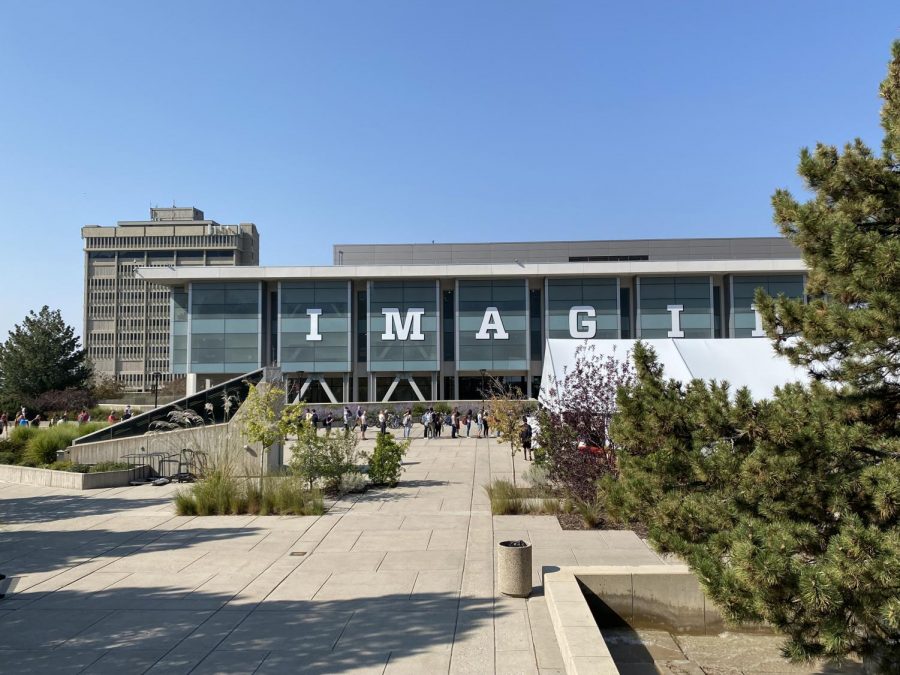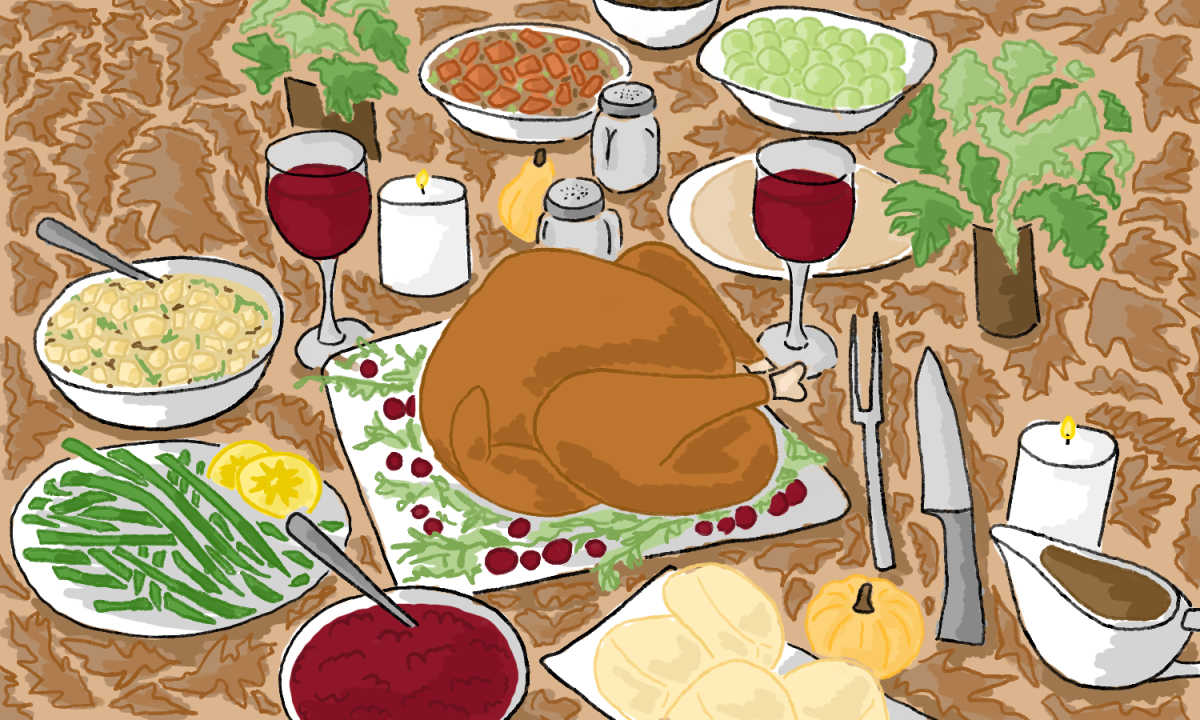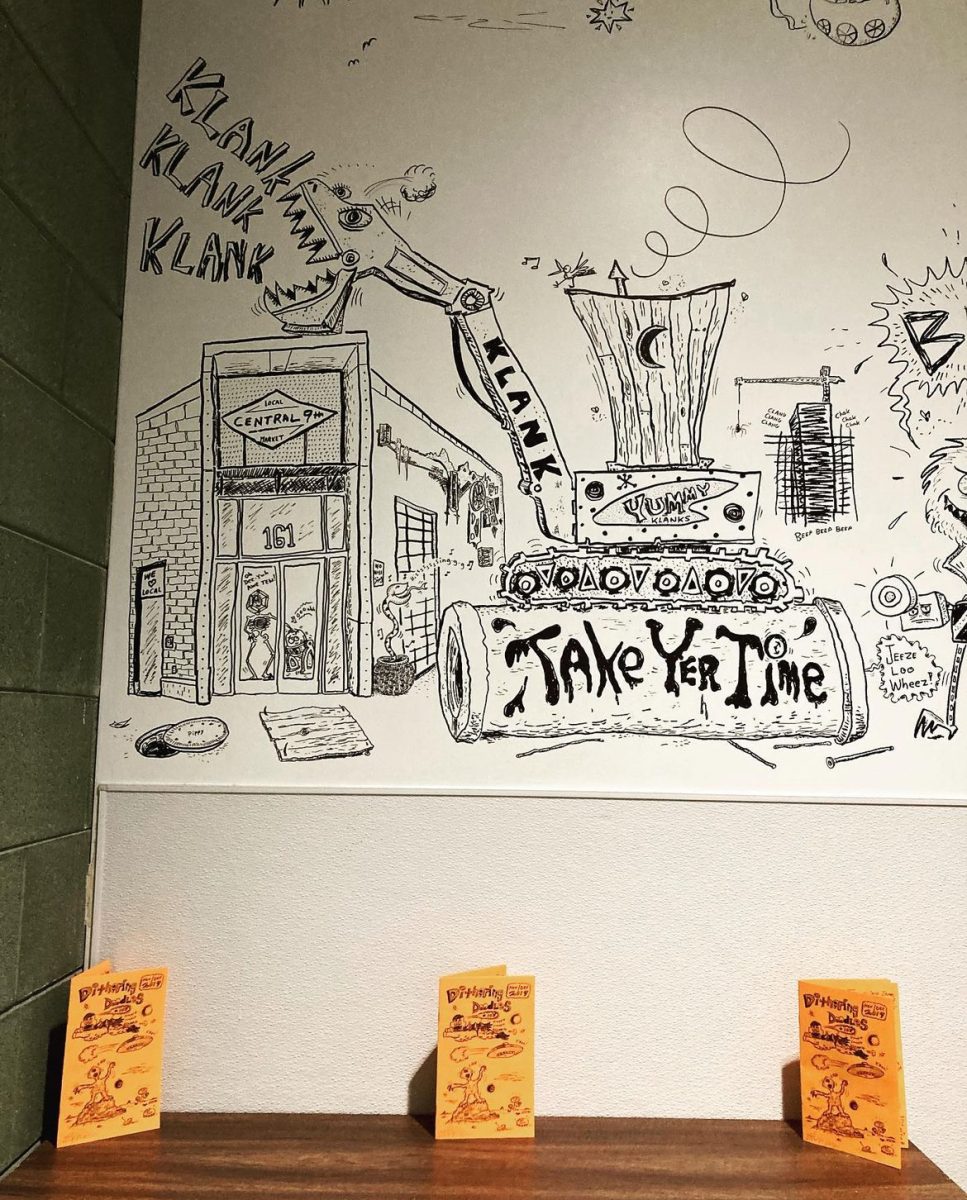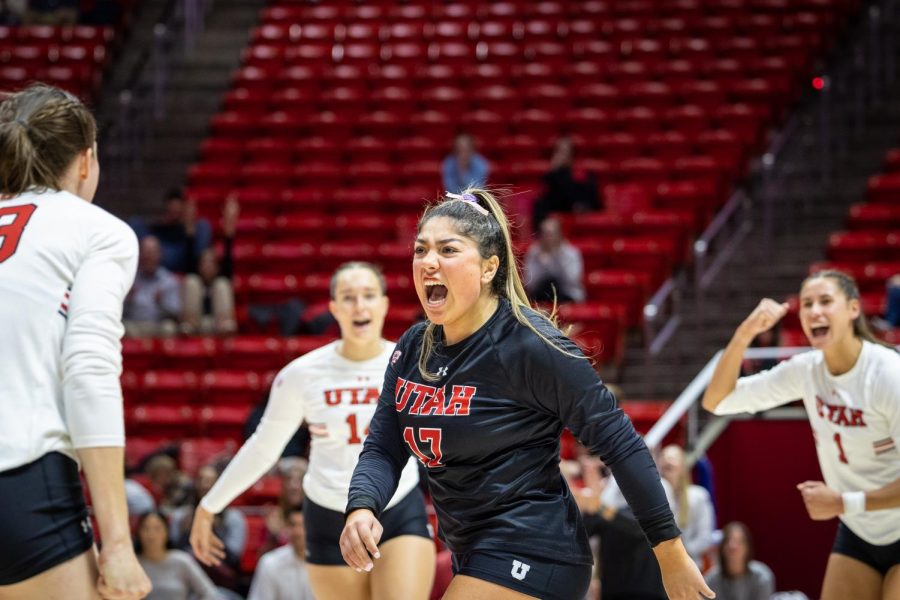Kafé Mamai: Bringing African-Caribbean Fusion to the U
University of Utah campus. (Photo by Paige Gardner | The Daily Utah Chronicle)
December 22, 2021
When walking across the University of Utah’s campus, it is common to find various food trucks scattered throughout highly populated areas. Students enjoy food on the go while indulging in new cuisines.
One such food truck is a student favorite that can be spotted consistently on campus: Kafé Mamai.
What makes this food truck different from the rest is its unique blend of African and Caribbean cuisine, which has been brought to Utah by owner and chef Abudujannah Soud.
Soud is originally from Lamu, a small island located off the coast of Kenya. He later moved to the United States in 2001, in hopes of starting a restaurant with flavors and foods from his homeland.
After traveling around the Caribbean, he used his newfound love of their food and his African heritage to create a food fusion unlike anything else. His goal was to introduce Utahns to a new type of food they could not get elsewhere.
Chef Soud’s Instagram says he drew inspiration from his grandma for the name of his business. Mamai means “mom water” in Swahili, and he chose this name because “She is the influence of my food and spirit behind the work ethic.”
Soud was originally looking to start a physical restaurant here in Utah but ran into some problems procuring restaurant space, so he started his catering business in 2016.
When he was approached by the U’s A. Ray Olpin Union about bringing his food to campus in a food truck form, he could not resist. In July 2019, the Kafé Mamai food truck was launched, bringing its food fusion to campus.
“I am the only one providing halal food,” he said. “The Muslim students here are having a hard time. They might not have their foods besides vegetarian food that they can eat.”
Murad Ahmed is a first-year Ph.D. student at the U. He frequents Kafé Mamai’s food truck on campus, eating there “at least once every two weeks” because it caters to his religious needs in a way other restaurants do not.
“I’m Muslim, and that means I’m only allowed to eat beef, and so the few spots where I can eat beef are exclusively where I almost always eat,” Ahmed said.
According to Soud, a large part of his business model centered around offering halal foods for those who need them.
“What I agreed to do is serve the population that needs something they don’t have, that’s not provided here,” Soud said.
In addition to his daily food truck ventures on campus, Soud has maintained his catering business, serving the greater Salt Lake area.
The restaurant’s menu includes jerk dishes — including tofu options — a common style throughout the Caribbean.
Ahmed said his favorite thing to get is “probably the cheeseburger or the Moroccan lamb burger.”
Chef Soud said Kafé Mamai will be back on campus next semester, but not until March of 2022, due to the cold weather. He explained because he cooks everything fresh, it is more difficult to operate in the cold winter months.
“If I was just putting things together and not really cooking, I probably could do it, but I’m cooking,” he said.
Soud is going to take the next few months to look for permanent restaurant space to expand his catering business and spend some time with his children.
“It’s a business at the end of the day, but I am so happy to be on campus and fulfill that need for students, to make them feel at home, and to show the locals the food,” Soud said.








